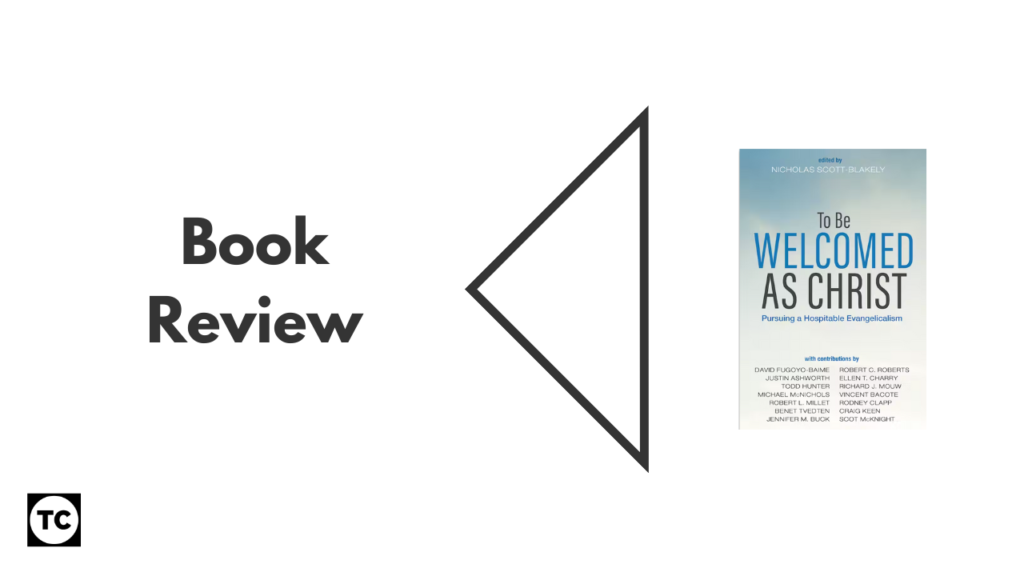
One of the best things about picking up books at ETS/IBR/SBLA/AAR is that you pick up something you didn’t expect, or something you wouldn’t normally find. Whilst I am a fan of the online world for some things, nothing quite beats physical book stalls/shops and the picking up of things that look interesting. So here is a short review of a collection of essays that I thoroughly enjoyed. Scott-Blakely’s introduction helpfully frames the book, not least by introducing its honoree, Dennis Okholm! (Note to self – festschrifts are not always obvious). Scott-Blakely included this rather resonant quote: “Participation in the Christian story is not automatic… Humans can live by different stories and be shaped to see the world through different lenses”, also noting that “What Okholm offers… is an approach to theology based on his own friendship with God…”.
Ellen T. Charry opens the book with ‘Theology as a Healing Art’, writing well of theology as bridge building. Uses Aquinas and Augustine carefully. “Theology is divine service pursuing a God-guided life”. Amen! Todd Hunter offers a good chapter on the church, raising some questions but ultimately rooting the church in the Trinity. “We can say that the church finds grounding, nature and purpose via a constant reference to the Trinity”. Justin Ashworth’s chapter ‘participating in Gods Mission’ is a good one – clearly excited about the issues and keen to move on from some of the baggage/wreckage/chaos of evangelicalism and language of mission without leaving everything behind. As he quotes Willie Jennings, “evangelical is a good word. We can’t let the right-wingers have it”. Vincent Bacote offers a poignant chapter. “The path toward a broader evangelicalism requires refining and repentance”, yet (in a particular moving/fitting tribute to the volumes festschrift-honoree) “even amid the frustrations there are signs that it could arrive…”. Jennifer M. Buck writes a competent but slightly frustrating chapter about women and evangelism- notable perhaps for what she doesn’t cover than what she includes. (Simply put, it is regarding a narrow-ish slice of evangelicalism, ignoring things like Worthy, Forty Women, but picking up some themes that echo with Nay Dawson’s She Needs, among other things).
Richard Mouw offers an interesting article bringing some theology into engagement with the topic of interfaith dialogue. A bit mixed, but a helpful reminder that “interfaith dialogue is not evangelism”. Robert L. Millet offers a Mormon perspective on evangelical/Mormon dialogue which Okholm was involved in. A key question is raised well: “just how much ‘incorrect theology’ can the grade of God compensate for?” A relevant point for many discussions. Clapp’s ‘the Monkhood of all believers’ is an interesting look at the monastic impulse within Christianity, for renewal: “monasticism is best understood as a recurring renewal impulse and movement spanning the history of Christianity”. Scott McKnight offers a helpful overview of friendship, with the Pauline lens demonstrating that friends become siblings: “Paul was not nurturing friendships in the classical model in his churches but rather sibling relationships”. Fugoyo-Baime proffers a fascinating chapter bringing ecclesiology, Ubuntu and friendship together. “In its essence, the church cannot be an entity comprised of individuals, nor does it belong to or can it be dominated by one person”. On a personal note, ‘Ubuntu’ is starting to feel like a good word to describe the thing in theological anthropology people call ‘relationality’. Craig T. Keen has written a poetic and moving peice of theology that refocuses us on the body of Christ and the Eucharist. “It is in him that there is room for all”. Robert C. Roberts writes an interesting essay on the question ‘is it ok to be proud of your humility?’ A thought-provoking piece. Michael McNichols pens a nice tribute to Okholm, with a focusing on the Eucharist as important. A good end to the essays here, before a kind epilogue by Benet Tvedten OSB fittingly closes this engaging and hospitable collection of essays.
In my view ‘To Be Welcomed as Christ’ is a stronger festschrift than it is collection of essays exploring and ‘pursuing a Hospitable Evangelicalism’, though as the summary above I hope makes clear there are hints towards it. A fine example of how a festschrift can be good – and hospitable to those unaware of the honoree! A good read with some highlights worth revisiting – in my view Bacote/Hunter/Clapp and Fugoyo-Baime’s contributions deserve a closer look.
Leave a Reply